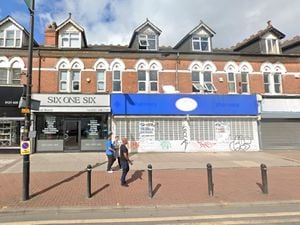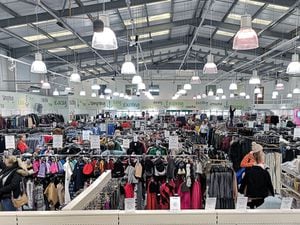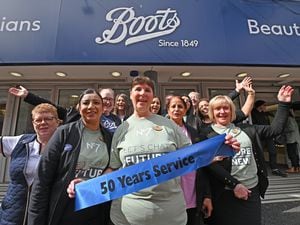Revealed: How 'crippling' business rates added to Beatties' owner House of Fraser's woes
Crippling business rate bills added to the woes at House of Fraser, property experts have revealed.
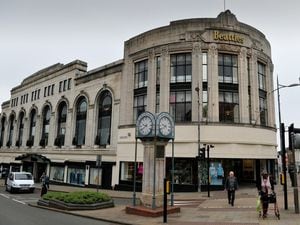
The group, with 59 stores nationwide, faced a huge business rates bill of around £38 million this year, set to rise to £40.3m next year according to property services group Colliers.
In Wolverhampton alone, the group's Beatties store on Victoria Street and Darlington Street faced an estimated rates bill of around £470,000 next year, says Colliers, based on the rateable value of £925,000 for the huge site.
At a time when its stores were struggling in the face of intense competion on the high street and from the internet, its business rates bills added to the costs weighing the business down. And last year's major revaluation of business rates cost the retail chain dear.
The flagship Oxford Street store, now slated for closure, had seen its rates bill rise to more than £4m and was set to keep increasing.
Revelations of the impact of the business rates on House of Fraser come as West Midlands Metropolitan Mayor Andy Street is urging Wolverhampton council to consider offering rates relief on the Beatties site in a last ditch effort to save the store from closure.
Around 279 jobs are at risk at Beatties, among 6,000 under threat nationwide with 31 stores set for closure early next year.
But the move came as no surprise to the business rates team at Colliers International, a commercial real estate agency and consultancy.
According to John Webber, head of business rates at Colliers, “Like many other retailers, House of Fraser experienced the negative impact of the 2017 rating revaluation, which we believe substantially added to its costs.”
Analysing House of Fraser’s 59 stores in England and Wales, Colliers estimate that House of Fraser faced a business rates bill in 2017/18 of around £38m and this would have been rising to £40.3 m in 2018/9.
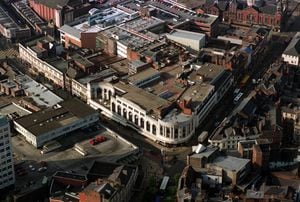
Moreover, some individual stores saw big rises following the 2017 Business Rates Revaluation. The H of F store in Oxford Street, for example saw a RV (rateable value) increase of over 57 per cent, from £5.73 million to £9.01 million following the revaluation and the Milton Keynes store was not far behind with a RV increase of nearly 52 per cent to £1.38 million. Unsurprisingly these are two of the 31 stores being closed.
In terms of actual rates paid this means that the Oxford Street Store alone saw a rates bill of £4.3 million in 2017/8 compared to £2.96 million 2016/7, a rise of nearly 46 per cent. And this figure was on its way up further, given the Government’s five years transition scheme. By 2021/22 House of Fraser, Oxford Street would have been paying business rates of over £5 million a year.
While the Beatties store in Wolverhampton is thought to have seen a slight reduction in its business rates, a bill of nearly £500,000 a year will have added to House of Fraser's reasons to close it.
“It’s no wonder House of Fraser had to shut stores and is trying to reduce its rent bills and even cut its store sizes in some areas," said Mr Webber. “As business rates are tied to rental values, it would be mad not to.”
Even those stores, in other parts of the country that should have seen a decrease in their rate bills following therevaluation, were not helping the corporate rates burden much.
The policy of phasing in reductions, whereby it takes five years of transition until businesses in England are allowed to pay their business rate bills at the new revalued levels, has meant that many retailers, such as House of Fraser have been paying much more than they should be, according to Colliers.
Mr Webber added: “House of Fraser, Debenhams, Toys R Us, Laura Ashley – the list of retailers with uncomfortably high business rate bills is never ending. As such businesses struggle against the competition from the online retailers and cope with uncertainty over Brexit, wavering consumer confidence and the rise in the national living wage for staff, it is no wonder the cracks in the system are growing.”
"Business rates are not the only factor- but they are an important factor. Something must be actively done to help the physical retailers. We are going to see a significant change on the high street landscape as these great names falter. Marginally successful towns could go into terminal decline.”

